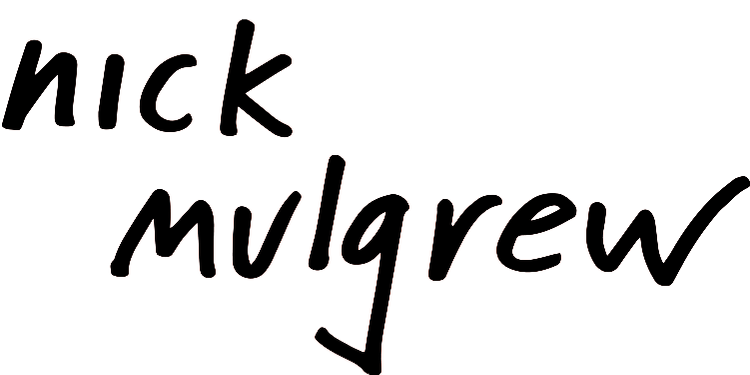Authority in South African Non-Fiction
Academic thesis/monograph
2016, 2020
Self-published
Download this book for free by clicking here.
(PDF format, 4.5 MB)
ABOUT
What is so special about non-fiction texts? Or, in other words, what are the properties inherent in them that makes readers bring different expectations to these texts than those they bring to fiction texts?
This book aims to answer these questions with a view to unraveling the reasons behind the heightened praise given to South African narrative non- fiction texts in the years following apartheid. These texts have attracted critical attention for their (seemingly unique) ability to depict scenes of epistemological difference, navigate differences of perspective, and thus provide some form of extratextual, societal value. Why does this perception exist, and what are the particular narrative strategies that seemingly allow these texts to negotiate these scenes of difference?
By examining the basics of non-fiction’s generic claims to factuality, this book delineates the ways in which non-fictional narratives are said to have – or are perceived to have – primacy of verisimilitude over other narratives, particularly in a country in which empirical truth across cultural, linguistic, and social lines is universally contestable. In doing so, this book argues for the theorisation of the concept of textual authority, which exists in a relationship with fictionality and factuality, and is made up of various intra- and paratextual components. These components are explored through case studies of various contemporary South African non-fiction texts – including those of Jonny Steinberg, Redi Tlhabi, Jacob Dlamini, Mandy Weiner, and Anton Harber – which in turn enrich a broad theoretical framework that, it is hoped, may be employed to enrich readings of narrative non-fiction, heightening the standard of critical readings and criticism in general of narrative non-fiction texts in South Africa.
AUTHOR’S NOTE
This book was originally written and submitted as a thesis in fulfillment of the requirements for the award of the degree of Master of Arts in English Language and Literature from the University of Cape Town in 2016. I have decided to repackage it as something of a self-published monograph to allow greater access to work that swallowed up a few years of my life. Why is it the norm that academic work remains difficult to access?
No significant changes or updates have been made to this text since I finished and submitted it in December 2016. As such, the language I use throughout is somewhat aloof, owing to being at the mercy of external examiners who require signposting throughout the text as to what ‘this book’ will and what ‘this book’ will not argue. In addition, I should note that 2015 and 2016 were difficult years to be a student and/or activist in South Africa, especially at the University of Cape Town. This is my excuse for – or, better, a rhetorical genuflection in defence of – any language or perspectives in ‘this book’ that might be over-keening or over-aggressive.
All that said, some of the chapters here have been, since 2016, re-written and published in peer-reviewed journals:
Chapter 8 (including case studies 5 and 6) were re-written and published as “The Subject as Writer: Substituting Discourse and Story in Jonny Steinberg’s A Man of Good Hope”, Journal of Southern African Studies, 44, 6, 2018.
Chapter 9 (including case study 7) were re-written and published as “A Negotiated Authority: Webs of Facticity in Jacob Dlamini’s Askari”, Research in African Literatures, 50, 1, 2019.
For the most complete versions of my work on the subjects in these two chapters, please read the above articles in tandem with the original chapters.
Please note: I have made this monograph available for download from this website only. This book may not be hosted by any other site or institution without my written permission.
CONTENTS
Introduction: What’s so special about South African narrative non-fiction?
Chapter 1: What is ‘narrative non-fiction’? (Or, Redefining the scope of ‘literary journalism’)
Chapter 2: Unpacking ‘non-fiction’
Case study 1: Paratextual failures in A Million Little Pieces by James Frey and Endings & Beginnings by Redi Tlhabi
Chapter 3: The problem with memoir
Chapter 4: Side-stepping the nomenclature of ‘truth’
Chapter 5: Fictionality, factuality and authority: an analytical framework
Chapter 6: Packaging: peritextual and semiotic positioning
Case study 2: Peritextual and semiotic positioning in Mandy Wiener’s Killing Kebble
Chapter 7: Narrative genuflection: narrative positioning and credentialing
Case study 3: Degrees of self-credentialing in early South African AIDS memoirs: Witness to AIDS and AidSafari
Case study 4: Collapsing credentials in Anton Harber’s Diepsloot
Chapter 8: Making a narrative reliable
Case study 5: Jonny Steinberg and the gambit of reliability
Case study 6: Substituting discourse for story in A Man of Good Hope
Chapter 9: The web of facticity
Case study 7: Facticity in Jacob Dlamini’s Askari
Chapter 10: Some concluding remarks

